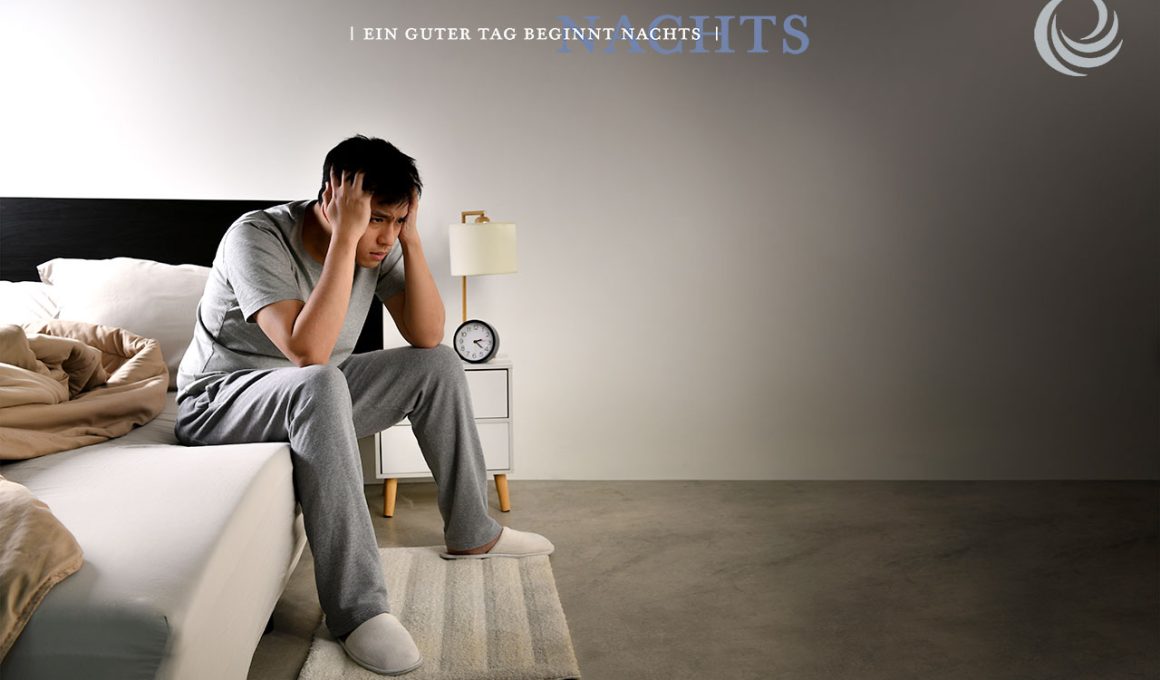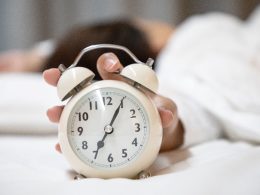When we sleep, we recharge our batteries for the next day. While we rest at night, the immune system works at full speed, regeneration processes take place and the brain processes the information from the previous day. But for around one in four Germans, sleep is no longer really restful. Many often toss and turn in bed for hours on end and only fall asleep very late or not at all.
Sleep disorders have almost become a disease of civilisation. Many people feel exhausted the next morning, find it difficult to get through the day and have serious problems with completing their daily tasks. Anyone who sleeps too little on a permanent basis can ultimately become seriously ill. If it takes you longer than 30 minutes to fall asleep, you have a real sleep disorder. And if you wake up three or more times a week before you have slept for six hours in a row, this is already a sleep through disorder.
1. Tip: Stop the carousel of thoughts
It is particularly common to have trouble falling asleep due to worries and problems. Your thoughts often circle around a certain topic again and again, which simply won’t let you go. This could be unfinished tasks, unresolved conflicts or even upcoming stressful situations. In addition, we often put ourselves under pressure when we go to sleep because we want to wake up feeling rested the next day.
- Our tip: Nobody can take your worries and problems off your hands, but you can work on solving or overcoming them during the day. And if you don’t succeed straight away, talk to someone about it, seek advice and write down what is bothering you. This will help your brain to put your thoughts to one side – and get ready for sleep.
2. Tip: Stick to regular meal times
The golden mean applies here: Your last meal should be neither too early nor too late. If you go to bed without having eaten, hunger may wake you up. Conversely, if you have a small gluttony right before going to bed, the body needs a lot of energy for digestion. This puts a strain on the body when it should actually be resting.
- Our tip: Therefore, have your last meal at least two hours before going to bed.
3. Tip: Avoid too much caffeine and alcohol
It should be common knowledge that coffee before going to bed is not a good idea. However, many people forget that other foods such as green and black tea, soft drinks and desserts also contain stimulants. Too much alcohol also has a negative effect on your sleep behaviour. The body needs a lot of energy to break down the alcohol – energy that is lacking during the nightly regeneration process. Alcohol also removes salts and minerals from the body, which can often lead to the well-known morning hangover.
- Our tip: It is best to avoid coffee, green and black tea, soft drinks or desserts with stimulating substances before going to bed.
4. Tip: No excessive naps or weekend sleep
A short nap after a busy day may work wonders – as long as it doesn’t last longer than half an hour. Otherwise you will upset your internal clock and impair your night’s sleep. It is also tempting to sleep late, especially at the weekend. However, this can also disrupt your sleep rhythm and mean that you no longer sleep well during the week.
- Our tip: It is best to avoid coffee, green and black tea, soft drinks or desserts with stimulating substances before going to bed.
5. Tip: Avoid too much distraction in the bedroom
The famous ‘blue light’ from LED screens also has a negative effect on our sleep because it blocks the release of the sleep hormone melatonin.
- Our tip: TVs, laptops and smartphones should therefore be banned from the bedroom altogether or at least not used for one to two hours before going to bed.
- And even if some animal lovers don’t like to hear it: pets don’t belong in bed. Dogs and cats in particular move around a lot, often wake up from time to time and therefore disturb your sleep to a considerable extent. In addition, even the most well-groomed animal companions bring parasites with them, which can then spread in the sleeping area.
6. Tip: Limit physical exertion in the evening
Sport and workouts in the evening make sense – as long as you give your body enough time to adjust to the rest phase. Immediately after exercise, your heart rate is still elevated and even after a few minutes your metabolism and adrenaline production are still working at full speed.
- Our tip: Allow yourself at least half an hour’s rest before you go to bed.














